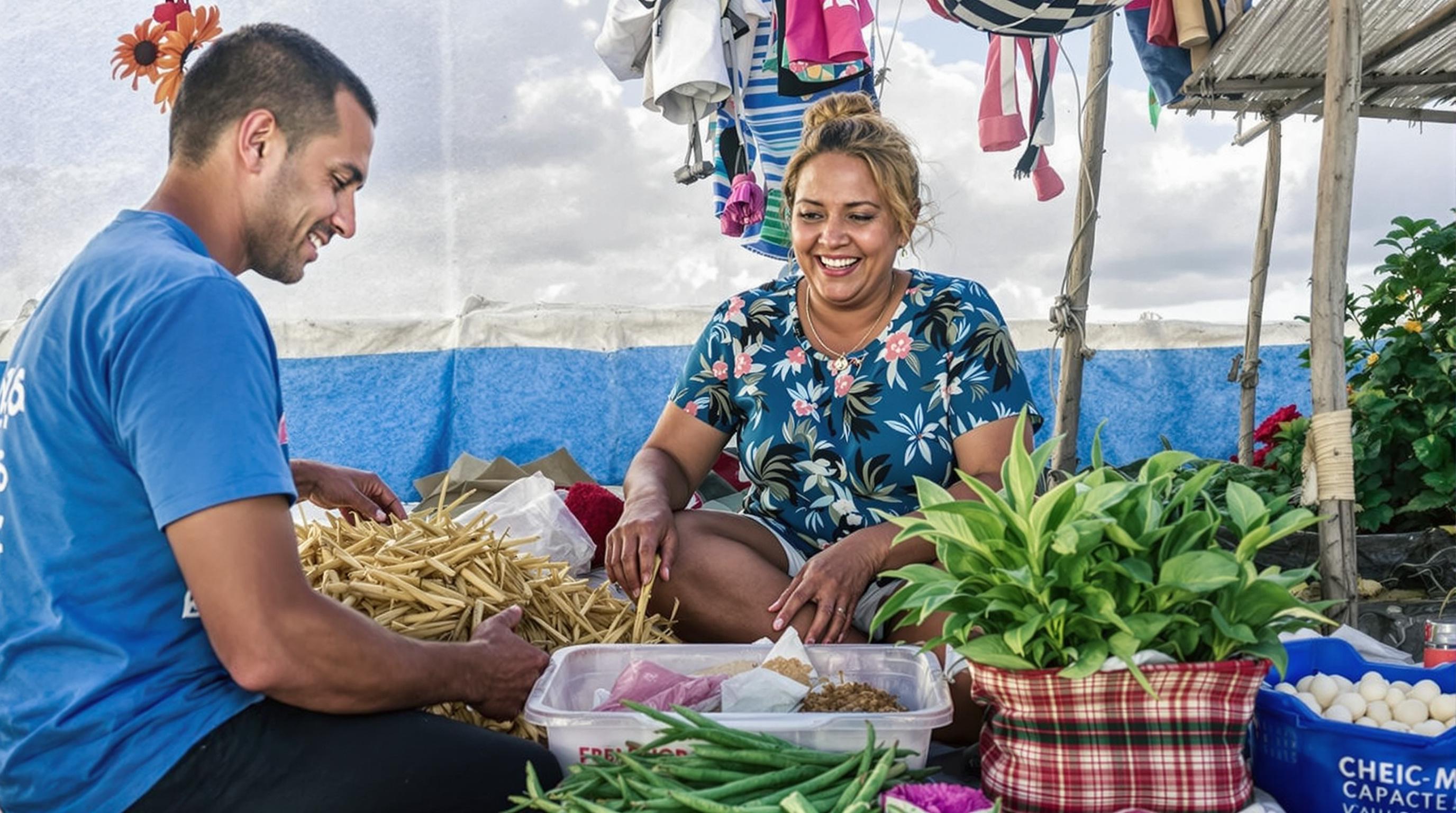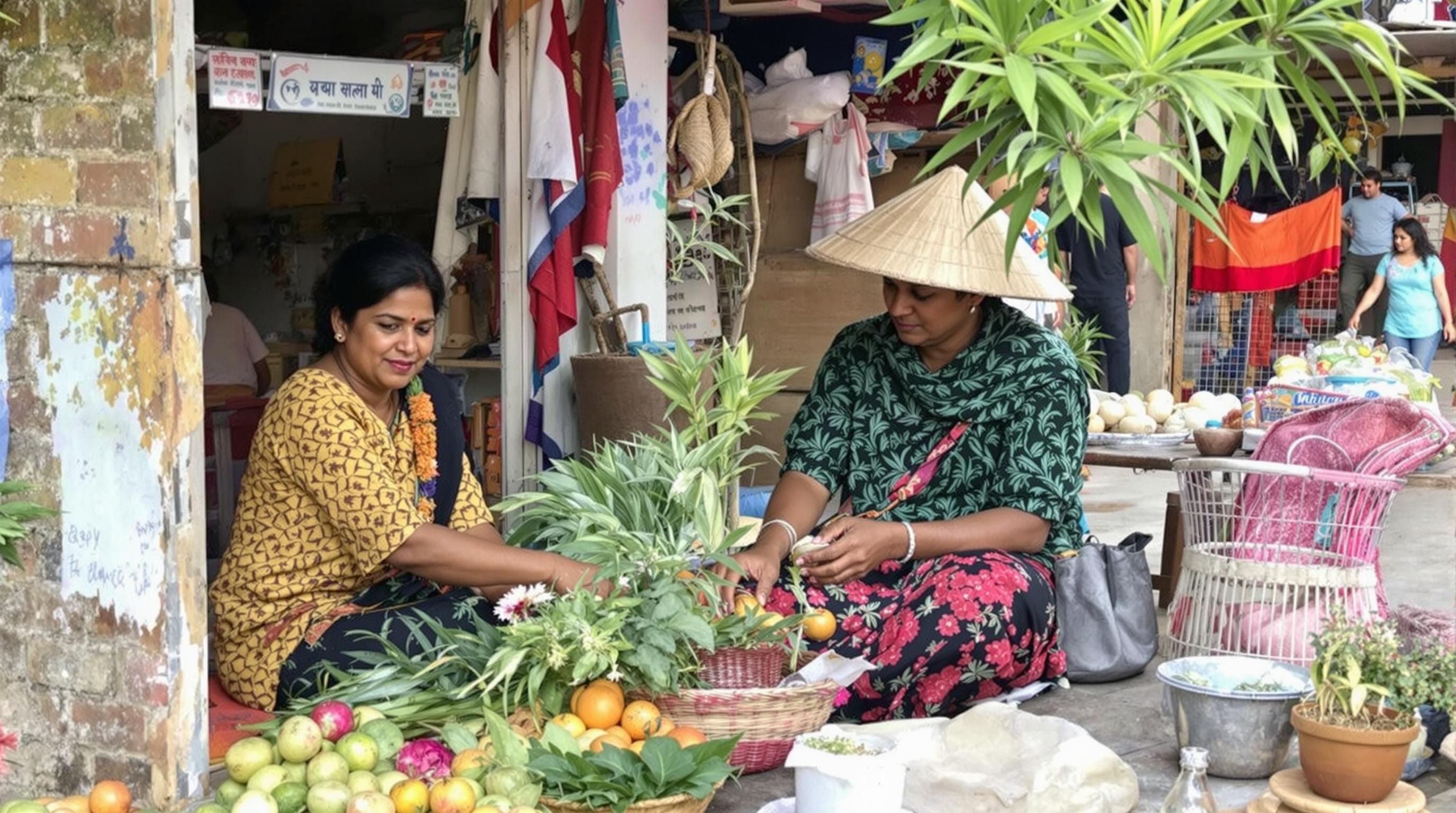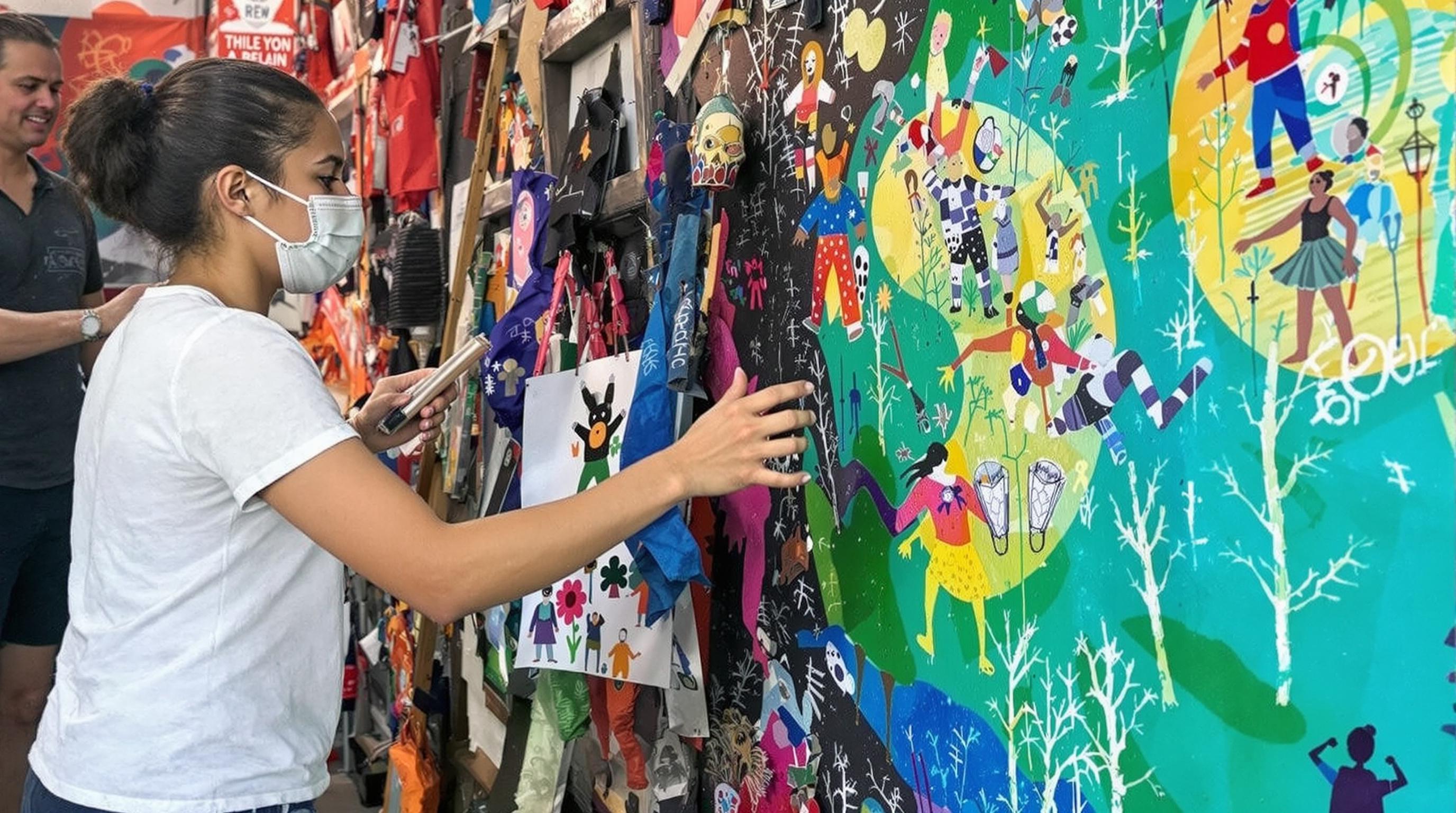Related Articles
- Uncharted Escapes: Navigating the Controversial Allure of Fringe Destinations and Their Untold Stories
- Uncharted Realms: The Surprising Intersection of Urban Legends and Adventure Travel in Offbeat Locations
- Curious Chronicles: Bizarre Transport Innovations Shaping Uncommon Explorations Across Unvisited Trails
- The Forgotten History of Eco-Adventuring: Learning from Indigenous Practices for Modern Exploration
- The Hidden Impact of Eco-Conscious Adventure Games on Environmental Education and Community Resilience
- Uncommon Routes: The Unexpected Appeal of Ghost Town Hikes in Eco-Friendly Exploration
7 Uncommon Interactions: Experiencing Local Economic Practices for an Authentic Cultural Immersion on Your Travels
7 Uncommon Interactions: Experiencing Local Economic Practices for an Authentic Cultural Immersion on Your Travels
7 Uncommon Interactions: Experiencing Local Economic Practices for an Authentic Cultural Immersion on Your Travels
1. Barter Markets
In many cultures, barter systems thrive as a means of trade, fostering not only economic interaction but also a vibrant community spirit. Instead of using cash to purchase goods, travelers can engage directly with local vendors, exchanging skills or services for handmade crafts, fresh produce, or other goods. This practice not only saves money but also creates a memory of interaction and negotiation unique to each encounter.
Participating in these markets allows travelers to communicate in a more meaningful way. It’s an opportunity to learn about the stories behind the items on display and the significance they hold in the local community. When you barter, the process often turns into a social experience, breaking down barriers of language and enabling true cultural exchange.
In places like Tanzania or rural India, barter markets are an integral part of yearly festivals. They attract locals, creating a bustling environment filled with laughter, negotiation, and shared experiences. Engaging in bartering not only cultivates lasting memories but respects the local economic practices that have thrived for generations.
2. Coworking Spaces
In urban centers worldwide, coworking spaces often serve as melting pots for freelancers and locals alike. By spending time in these collaborative environments, travelers can connect with local entrepreneurs and professionals, sharing ideas while immersing themselves in the local business culture. This experience transcends the conventional tourist narrative and beckons visitors into the daily grind of city life.
While working side by side with locals, travelers gain insights not only into the local economy but also into the industries that drive it. Whether it's tech startups in Berlin or artisans in Medellín, the rich backdrop of coworking spaces offers a unique look into the hustle and heart of regional commerce.
Furthermore, many coworking spaces host networking events that encourage interaction, enhancing the learning experience. These events often feature workshops led by local experts, creating opportunities for knowledge exchange that heighten cultural appreciation during your travels.
3. Community-Supported Agriculture (CSA)
Community-supported agriculture programs unite local farmers with consumers through direct purchasing of farm shares. Participating in a CSA allows travelers to not only enjoy fresh, local produce but also engage in the agricultural practices of the area. Most CSAs offer opportunities to visit farms, volunteer, and even join in seasonal festivities, creating a profound sense of connection to the land.
Travelers who participate in a CSA can learn hands-on about the crops grown in the region, the care taken to sustain them, and the local seasonal rhythms. It fosters an appreciation for the efforts behind food production, and the economic cycles of local farming families.
Moreover, engaging with farmers can lead to deeper discussions about sustainability, land use, and cultural practices connected to agriculture. By joining a CSA on your travels, you evolve from being a passive consumer to an active participant in the local economic ecosystem.
4. Skill-Sharing Workshops
Participating in skill-sharing workshops hosted by local artisans or cultural practitioners is a delightful way to gain insight into the intricate skills that define a community. These workshops often involve hands-on learning experiences—pottery, weaving, cooking, or even language sessions—carrying the essence of local heritage. Travelers exchange not only money for knowledge but also time and enthusiasm for a creative experience.
The inviting atmosphere of these workshops creates a nurturing environment, where participants can share stories and techniques from their own lives. They strengthen bonds between cultures and allow international travelers to appreciate the value of tradition, craftsmanship, and local commerce.
As you learn alongside locals, you become part of a genealogy of skill transmission, which fosters respect for the unique artistic expressions rooted in various cultures. These interactions can leave lasting impressions and lifelong friendships, enriching your travel experience through authentic cultural immersion.
5. Local Food Tours
Food tours present travelers with an exciting and delicious affordance to connect with the culinary traditions of a location while supporting local economies. Rather than simply dining at popular tourist spots, journeying through food neighborhoods with local guides illuminates the interwoven lives of food producers and vendors in the community.
During such tours, you can explore street food vendors, family-owned restaurants, and markets, gaining first-hand knowledge about the ingredients, techniques, and the stories behind each dish. This immersion into the local food scene not only provides enjoyment for the senses but strengthens cultural ties, as food often carries the essence of history and social identity.
Additionally, many food tours prioritize using locally-sourced ingredients and sustainable practices, aligning with broader ecological values. Supporting local dining establishments fosters economic resilience and ensures that food tourism benefits the community directly, rather than contributing to corporate profit margins alone.
6. Art and Craft Markets
Art and craft markets offer a vibrant array of locally-made products, presenting an opportunity for travelers to connect with artisans and their creative processes. Visiting and purchasing from these markets show support for local artists while providing an authentic glimpse into cultural expressions unique to the region.
Interactions at these markets are inherently enriching; they often include engaging conversations with creators who share their inspirations, techniques, and cultural heritage. By understanding the motivation behind the artwork, you develop a deeper connection to the community that created it.
Buying from local artisans ensures that the money spent is cycled back into the community, helping to nurture the artistic economy and promote its longevity. Each piece holds a story that transcends mere commerce, turning your travel souvenir into a cherished memory of cultural appreciation.
7. Eco-Tourism Initiatives
Experiencing eco-tourism initiatives can significantly alter the lens through which you view travel. These programs not only celebrate the natural beauty of a region but also highlight the importance of preserving the environment while benefiting local economies. Travelers who engage in eco-tourism often support local conservation efforts, wildlife protection, and sustainable practices.
Through participating in eco-tours, you become a steward of the environment, learning about the communities' efforts to balance economic needs with ecological health. This hands-on learning fosters genuine connections with locals dedicated to safeguarding their natural heritage while demonstrating the reciprocal relationship between culture and nature.
When tour activities are tied to conservation funding, it's evident that travels can leave positive impacts beyond mere visitations. Contributing to local economies through eco-tourism generates pride and commitment within communities and inspires travelers to continue supporting these causes long after their experiences conclude.




